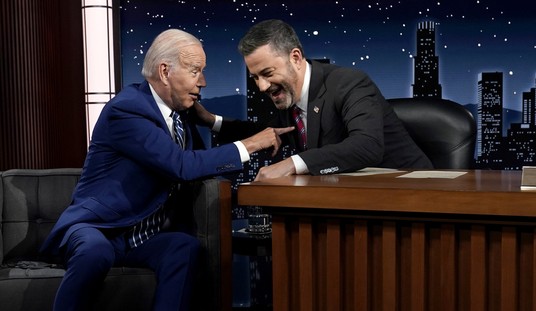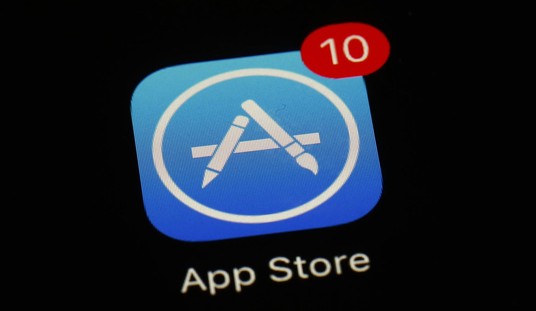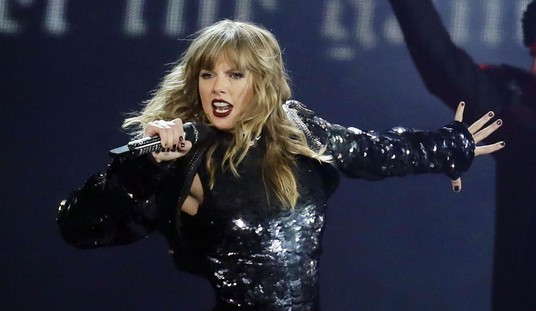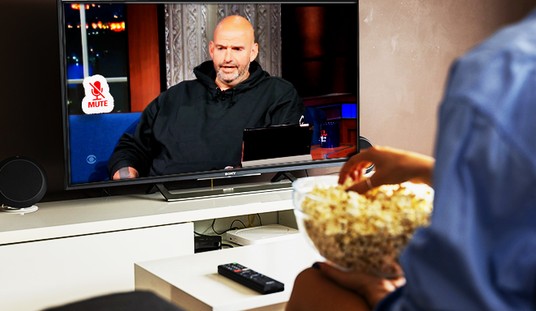Hot Air and Townhall Media Group commissioned their first-ever scientific poll this month, partnering with Survey Monkey on the 2016 primary races. The online survey of 1,783 random registered voters across the United States took place among a potential audience of 45 million in the Survey Monkey response database, rather than just among readers of Hot Air and Townhall Media Group sites.
In the Republican presidential primary, Donald Trump has a large lead among Republicans, independents, and combined, whether likely voter controls are applied or not. Yet a majority of these voters believe that Trump does not have the temperament for the presidency, and Trump loses in head-to-head matches against some — but not all — of his GOP competitors for the nomination.
Among all combined Republican and independent voters, Trump (23.77%) leads by almost 3:1 over Ben Carson and Jeb Bush, who tied for second place at 8.13%. However, undecided voters (30.34%) still outstrip Trump:
In this poll, the top 10 slots would include Carly Fiorina, as well as Chris Christie and Mike Huckabee. That would put Fiorina on the main stage in the next CNN debate, but it would demote Scott Walker to the secondary stage. Even among independents alone, Trump leads the pack at 18.78%, followed by Jeb Bush at 6.73% and Ben Carson at 5.92%, and 41.63% undecided.
The top issue for Republican and independents combined emphasized economic and national-security concerns:
The big surprise in this result is the relatively low response for immigration, the issue that initially catapulted Trump to the top of the polls. Only 7% listed that as their top issue in this group; even among only Republican voters, it only got 8.53% of respondents citing it as the top issue. Both subgroups have the same relative order and ratio on issues.
Rather than do head-to-head matchups between Republicans and Democrats, we decided to test Trump’s performance at this point in head-to-head matchups against his Republican opponents, assuming the primary had come down to two choices. Among both Republicans and independents, Trump lost to Bush 47/53, Carson 42/58, Rubio 45/55, and Fiorina 46/54 [see update]. When restricted to only Republicans, Trump beat Bush 53/47, Rubio 52/48, and Fiorina 52/48, but still lost to Carson 48/52. Trump beat both Walker and Cruz in both scenarios.
However, when it comes to Trump’s temperament, the jury is largely still out among Republicans. A narrow plurality among Republican voters of 42/38 believe Trump has the temperament to be President, but 20% of them haven’t yet decided. Among independents, it’s a very poor 21/63 against Trump, with only 15% undecided.
Respondents were also asked whether the Bush family legacy in the White House would make it more or less likely to cast a vote for Jeb. Among combined Republicans and independents, only 10.64% said that made it more likely, while more than three times as many (35.66%) said less likely. A near-majority of 49.11% said it would make no difference at all, which may be good news for Jeb if “more” and “less” were more in balance. This imbalance was much more pronounced among independents (5.51% to 46.73%) than Republicans (15.99% to 24.09%), which suggests that Bush might want to pursue more of a base-energizing strategy.
In the Democratic primary, Hillary Clinton leads the pack — but not by much:
Clinton has a six-point lead over Bernie Sanders, 37.88/31.75, when the sample only includes Democrats (as shown in the graphic above). When independents are included, Sanders has a one-point lead over Clinton, 29.6/28.46. That grows to a two-point lead when including all non-Republican respondents (“Something Else” for party ID was nearly 10% of the sample), 28.77/26.64. Sanders has wide leads among both categories of independents, by slightly over 10 points, 25.83/15.56. Note that Joe Biden scores a distant third in all of these demographics and combined, but Biden has also not officially announced, either. There are significant numbers of undecideds in all these groups — combined for independents, it’s 44.56%, almost three times that of Democrats at 15.8%. At least at the moment, it doesn’t appear that too many are biding their time for Biden.
It’s not difficult to see why Clinton is struggling. On the question of whether she cares about people like you, Democrats give her a rather lukewarm 67/13.65 positive rating, with another 19.79% unsure. The combined independent groups have a much different evaluation of Clinton’s caring qualities, rating her at 24.02/53.78, and 22.21% undecided. Recall that Barack Obama’s strength came in this question, and that quality was the linchpin of his voter coalition.
Clinton may be failing to connect on issues as well. She has been hammering on Planned Parenthood defenses and shrill War On Women demagoguery, but that’s not where non-Republican voters are looking for priority attention:
Abortion and same-sex marriage are the top priority for just over 3% of all non-Republican voters. Jobs and the economy is the biggest priority policy area, with 31.28%. Income inequality comes in a distant second at 12.48%, followed closely by national security and foreign policy at 11.72%. That hasn’t exactly been a safe policy area for Clinton of late, and it may become an even bigger problem for Democrats in a general election, since independents in both groups care more about it than Democrats alone (9.51%).
Younger voters
The need to energize younger voters is especially acute for both parties, and yet for the most part it seems as though neither party is on the right track. Among younger voters (18-29 YO) overall, issues like income inequality (8.68%) and immigration (1.96%) turn out to be much less important than among their older peers. Their top three issues are jobs and the economy, national security and foreign policy, and health care, not dissimilar from the rest of the electorate. In the Other category, the response provided most often by respondents was “education.”
Note that the “war on women” issues won’t play much here, either. The low position for climate change and income inequality may seem surprising as well. Younger voters in this poll are more focused on pocketbook and security issues.
Voters in this age bracket who identified as Republican or independent also back Donald Trump, but at a much lower level, 14.75%, followed by Jeb Bush (7.1%), Marco Rubio (6.56%), and Ben Carson (5.46%). Trump loses in all the head-to-head primary matchups in this demographic. This is a very small sample of 183 respondents, however, so the margins of error here may only make the frontrunner a significant finding.
Amon non-Republicans in this group (a sample of 283 respondents), Hillary Clinton does particularly poorly. She falls behind Bernie Sanders by nearly 10 points, 33.92% to 24.38%, with 30.74% undecided about their vote. Joe Biden gets only 8.48% of the respondents, while no one else gets more than 5 votes. Clinton does fare a bit better on the caring question in this group, 44.88% to 29.68%, but it’s still nowhere near Barack Obama levels in other polling, even to this day.
Demographics
It’s probably best to show these rather than explain them:
The demographics look pretty reasonable, not perfect but substantially representative. Less than 15% of the sample rarely or never vote in federal elections. The party identification breakdown in this sample is 36.57% Democrat, 26.3% Republican, and 37.13% unaffiliated (27.48% “independent,” 9.65% “something else”). We did not adjust the sample to a voter turnout model in the above results, so this is exactly what the survey returned.
Survey Monkey explains its online polling methodology:
SurveyMonkey Contribute allows people to take surveys for charity and a chance to win a sweepstakes prize. We believe that by offering these non-cash incentives, we limit problems such as satisficing and encourage respondents to provide honest, thoughtful opinions.
We recruit members from a diverse population of 45+ million people who take SurveyMonkey surveys every month. For example, after completing a survey, respondents are redirected to a page that may feature an advertisement for SurveyMonkey Contribute.
After signing up, each member fills out a profile, which allows us to gather a wide variety of profile attributes. You choose from these attributes to send your survey to a targeted audience. We’ll email respondents who match your targeting criteria a unique link to your survey.
NBC recently used Survey Monkey for its primary polling earlier this month, a move that drew some criticism from analysts. We decided to partner with Survey Monkey to test their system and also to move our own polling analysis in a more independent direction. We welcome your comments on this project. Finally, I’d like to thank my friend and Salem Media Group colleague Guy Benson for his help in developing the survey. Guy will have his own thoughts on the data at Townhall.com this afternoon.
Update: Guy now has his analysis up at Townhall. Also, I misformatted the results on the head-to-head numbers; they are now fixed.
Update: I have had requests for the full breakdown of results in both primaries. Here are the charts, first for Democrats including all non-GOP voters, and then the GOP with Republican and independent voters.



















Join the conversation as a VIP Member